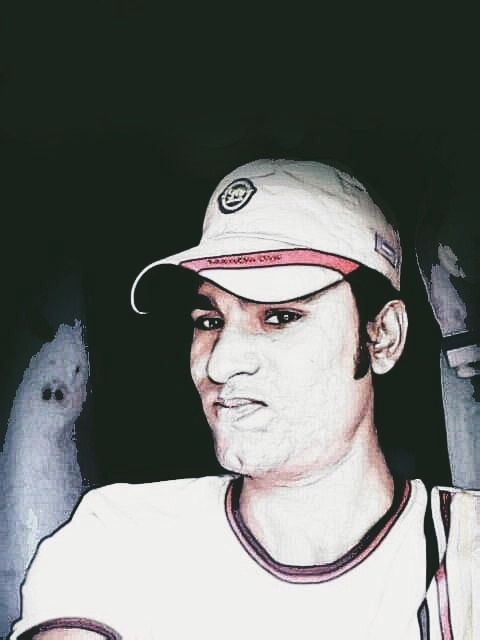A Constant Fight of LGBTQ Community in Bangladesh for Rights
- Just Another Bangladeshi

- Feb 26, 2019
- 3 min read
Updated: Sep 13, 2023
In the colorful mosaic of human diversity, Bangladesh, like many other nations, has its LGBTQ community, seeking its rightful place in society. The journey of this community in Bangladesh has been fraught with struggles and challenges. In this blog post, we'll explore the trials faced by LGBTQ individuals in Bangladesh through the lens of an interview with Mr. Rasel Ahmed, the co-founder of Bangladesh's first and only LGBTQ magazine, Roopbaan. This conversation, held during the Freedom From Religion Foundation's 2018 National Convention, sheds light on the fight for LGBTQ rights in Bangladesh and the tragic events that unfolded in 2016.

The Unveiling of Roopbaan: A Beacon of Hope Rasel Ahmed primarily identifies himself as an independent queer storyteller with a multidisciplinary portfolio, which includes filmmaking, journalism, and publishing. He embarked on this remarkable journey with Roopbaan, the pioneering LGBTQ magazine in Bangladesh. But why choose the name "Roopbaan"? The name "Roopbaan" derives from a famous character in Bengali folk theater—a male dancer who performs as a woman. This character's story was reclaimed by Rasel and his team to retell it from a queer perspective. It's a story of a 12-year-old girl forced into marriage with a 12-day-old prince, banished to a jungle on her wedding night. Despite its heterosexist origins, Roopbaan's story resonated as a tale of love's triumph over social stigma. The choice of this name served a dual purpose. It not only rooted the LGBTQ movement in Bangladeshi culture but also challenged the perception that LGBTQ issues were Western imports. Roopbaan aimed to promote a local, culturally rooted LGBTQ narrative.
Roopbaan's Grassroots Beginnings Roopbaan started as a grassroots publication, initiated by a small group of friends, including Rasel Ahmed and Xulhaj, the mastermind behind the project. Their journey began in 2012-13, fueled by a shared desire to create something meaningful for the LGBTQ community in Bangladesh. Despite the challenges, they managed to publish a 56-page printed magazine by January 2014. The magazine's popularity soared, making it the face of homosexuality in Bangladesh and creating a sense of community among LGBTQ individuals. Roopbaan expanded its horizons with cultural events, including fashion shows and film festivals, all aimed at raising awareness and fostering acceptance.
Tragedy Strikes: The Double Murder As the LGBTQ community gained visibility, it also became a political pawn. In April 2016, tragedy struck when Xulhaj and Tanoy, both associated with Roopbaan, were brutally murdered by attackers who posed as couriers. Xulhaj was the main target, but Tanoy was tragically caught in the crossfire. Xulhaj's mother, a witness to the horrifying incident, saw her son's life extinguished before her eyes.
A Frustrating Investigation Despite the international outcry following the murders, the investigation into the case has made limited progress. Bangladesh's police have faced criticism for their handling of the case, with over 25 failed attempts to submit an investigation report since April 2016. This lack of progress underscores the challenges faced by the LGBTQ community in Bangladesh.
The State of LGBTQ Rights in Bangladesh and South Asia Bangladesh, like many South Asian countries, continues to grapple with Section 377, a colonial-era law that criminalizes same-sex relations. The law, common across the region, presents a significant challenge to LGBTQ individuals. However, the situation extends beyond legislation. LGBTQ individuals in Bangladesh face societal prejudice, misinformation, and a lack of understanding about the diverse spectrum of gender and sexuality. Marginalization, particularly among economically disadvantaged communities, remains a pressing issue. The fight for LGBTQ rights isn't just about decriminalization; it's about addressing the complexities of identity, class, and social norms. While the decriminalization of homosexuality in India was a historic milestone, it's essential to acknowledge that the struggle for LGBTQ rights in South Asia is multifaceted. True progress involves dismantling deeply ingrained prejudices and creating inclusive societies.
Conclusion
The LGBTQ community in Bangladesh has come a long way, from the grassroots beginnings of Roopbaan to the tragic events of 2016. Their journey is a testament to resilience, determination, and the ongoing fight for equal rights and acceptance. The struggle is far from over, but each step forward, no matter how small, brings the LGBTQ community in Bangladesh closer to the day when they can live freely and authentically in their homeland.

_edited.png)



























রূপবানের পর এই ব্লোগটিই বাংলাদেশের সমকামীদের একমাত্র আশার জায়গা, ভালো থাকবেন